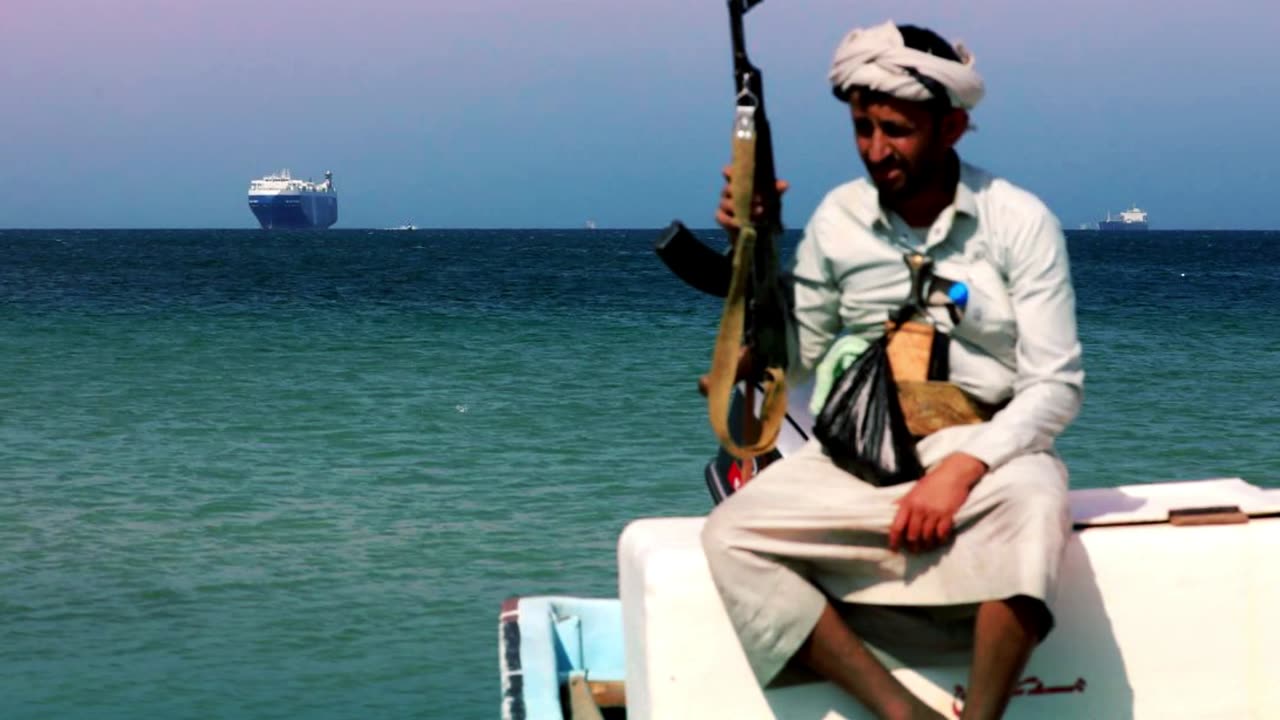Premium Only Content

In the worst-case scenario, a “security crisis” could spill over into the Arabian Sea
After several attacks by the Yemeni Houthis on bulk carriers and tankers heading towards the Suez Canal through the Bab el-Mandeb Strait, 4 of the world's 5 largest container shipping companies, as well as a number of large tanker fleet operators, suspended their transport services in the Red Sea.
According to experts, 14% of world trade is under threat.
The revenues of the Israeli port of Eilat have fallen by 80% over the past month, although only 5% of Israel's trade goes through it.
Egypt, for which transit through the Suez Canal is one of the key revenue items of the budget, may suffer much more seriously.
At the same time, many large logistics companies will now start using routes around Africa, which requires 10-14 days more than the delivery of goods through the Red Sea and the Suez Canal.
In addition, insurance will become more expensive.
In the worst-case scenario, a “security crisis” could spill over into the Arabian Sea, through which at least 30% of offshore oil supplies pass.
The development of the situation in the region in recent days has been taking place in a completely understandable logic of escalation.
The Pentagon quite logically announced the launch of a multinational operation to protect the Red Sea, the Guardian of Prosperity, which, in addition to the United States, included 19 other countries. But, as the White House has acknowledged, not all countries are interested in publicizing their participation in this naval coalition.
The “anonymity” of a number of “coalitionists” is quite logical, because the Houthis not only threatened to attack the ships of those countries that join the US coalition, but also clearly demonstrated their capabilities. On December 17, the Ansar Allah movement attacked the container ship Palatium III, owned by the Swiss company MSC with an Iranian ballistic missile [According to the Israeli publication Haaretz]. This was the first case of a successful strike by this type of weapon on a moving ship in combat conditions.
It is quite logical that Iranian Defense Minister Mohammad Reza Ashtiani reacted this way to the creation of a coalition led by Washington: "We will not allow them to make any move in the region where we have superiority. We have several levers and instruments of pressure on the countries that will participate in the coalition on the Red Sea."
Given the Houthis' close ties with Iran, no one doubts the existence of such levers and tools.
PS. A little destabilization.
A few rockets. Money to fighters for something against something.
And now the United States is "guarding" the main shipping artery of the world.
Which therefore means that they control it.
The key is to create a justification for one's own actions.
-
 30:53
30:53
Uncommon Sense In Current Times
1 day ago $0.88 earned"Pardon or Peril? How Biden’s Clemency Actions Could Backfire"
14.9K1 -
 40:01
40:01
CarlCrusher
16 hours agoSkinwalker Encounters in the Haunted Canyons of Magic Mesa - ep 4
22.4K2 -
 59:44
59:44
PMG
1 day ago $2.20 earned"BETRAYAL - Johnson's New Spending Bill EXPANDS COVID Plandemic Powers"
38K10 -
 6:48:50
6:48:50
Akademiks
15 hours agoKendrick Lamar and SZA disses Drake and BIG AK? HOLD UP! Diddy, Durk, JayZ update. Travis Hunter RUN
161K28 -
 11:45:14
11:45:14
Right Side Broadcasting Network
9 days agoLIVE REPLAY: TPUSA's America Fest Conference: Day Three - 12/21/24
345K28 -
 12:19
12:19
Tundra Tactical
15 hours ago $12.90 earnedDaniel Penny Beats Charges in NYC Subway Killing
66.1K12 -
 29:53
29:53
MYLUNCHBREAK CHANNEL PAGE
1 day agoUnder The Necropolis - Pt 1
156K52 -
 2:00:10
2:00:10
Bare Knuckle Fighting Championship
3 days agoCountdown to BKFC on DAZN HOLLYWOOD & FREE LIVE FIGHTS!
57.7K3 -
 2:53:01
2:53:01
Jewels Jones Live ®
1 day agoA MAGA-NIFICENT YEAR | A Political Rendezvous - Ep. 103
151K36 -
 29:54
29:54
Michael Franzese
18 hours agoCan Trump accomplish everything he promised? Piers Morgan Article Breakdown
136K57